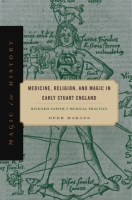Robert Burton’s Rhetoric
An Anatomy of Early Modern Knowledge
Susan Wells
“Wells eloquently makes the case for Burton’s Anatomy as a key text that helps us rethink rhetoric in a number of ways: as an arbiter of narrative form, as a vehicle for cross-disciplinary learning, even as a model for education that has powerful implications today. In a time when knowledgeable activity amidst uncertainty is more important than ever, this kind of scholarly work on rhetoric feels deeply necessary, as we need to know much more about how we got here, and what to do now.”
- Description
- Reviews
- Bio
- Table of Contents
- Sample Chapters
- Subjects
In the first decades of the seventeenth century, Robert Burton attempted to gather all the existing knowledge about melancholy, drawing from professional discourses including theology, medicine, and philology as well as the emerging sciences. Examining this text through a rhetorical lens, Wells provides an account of these disciplinary exchanges in all their subtle variety and abundant wit, showing that questions of how knowledge is organized and how it is made persuasive are central to rhetorical theory. Ultimately, Wells argues that in addition to a book about melancholy, Burton’s Anatomy is a meditation on knowledge.
A fresh interpretation of The Anatomy of Melancholy, this volume will be welcomed by scholars of early modern English and the rhetorics of health and medicine, as well as those interested in transdisciplinary work and rhetorical theory.
“Wells eloquently makes the case for Burton’s Anatomy as a key text that helps us rethink rhetoric in a number of ways: as an arbiter of narrative form, as a vehicle for cross-disciplinary learning, even as a model for education that has powerful implications today. In a time when knowledgeable activity amidst uncertainty is more important than ever, this kind of scholarly work on rhetoric feels deeply necessary, as we need to know much more about how we got here, and what to do now.”
“The title page of Robert Burton’s Anatomy of Melancholy (1621) promises to dissect its subject ‘philosophically, medicinally, historically’—and as if that were not enough, Burton regales readers with theology, astrology, philology, and much more besides.”
“Wells’s book has something of the mobile quality she finds in Burton’s, in the shifts through different areas of knowledge. For readers with an interest in the history of science, her chapter on early modern medicine is of particular interest: her survey through forms of medical writing from the case histories printed in observationes to regimen manuals on health is deft and thoughtful. Likewise, she does valuable work in reflecting on Robert Burton’s own library (much of which still exists in Oxford) and how his reader’s marks indicate his ranging curiosity.”
Susan Wells is Professor of English Emerita at Temple University. She is the author of Sweet Reason: Rhetoric and the Discourses of Modernity; Out of the Dead House: Nineteenth-Century Women Physicians and the Writing of Medicine; and “Our Bodies, Ourselves” and the Work of Writing.
List of Illustrations
Acknowledgments
1. A Monstrous Anatomy
2. Burton’s Anatomy : Genres as Species and Spaces
3. The Anatomy of Melancholy and Early Modern Medicine
4. Burton, Rhetoric, and the Shapes of Thought
5. Translingualism: The Philologist as Language Broker
6. The Anatomy of Melancholy and Transdisciplinary Rhetoric
Notes
Bibliography
Index
Download a PDF sample chapter here: chapter1
Also of Interest
Mailing List
Subscribe to our mailing list and be notified about new titles, journals and catalogs.






